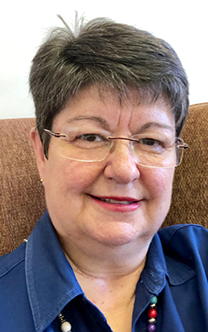
Abuse manifests in different forms, from physical to emotional, and abuse by someone you love and trust in a close relationship can be particularly destructive and painful.
For more than 20 years, Dr Tertia Oosthuizen, a counselling and industrial psychologist, has done research into all forms of violence but specifically against women. Her research also includes trauma, post-traumatic personal growth and reconciliation processes.


![]() SCROLL
SCROLL
![]() BACK
BACK
Help is one call away
If you find yourself in an abusive relationship, there is help.
NWU staff members and their families can use the NWU Wellness employee assistance programme that provides free face-to-face counselling nationally.
This programme is a 24-hour confidential service, connecting NWU employees and their immediate families with experienced counselling professionals for help with personal, family and work-related problems.
Employees and their immediate family may call 0800 213 149 to speak to a counsellor.
– take control of abusive relationships
DON'T
STAY SILENT
The media have extensively published articles about many women who have chosen to share their journeys after falling victim to domestic violence and abuse. The stories of local celebrities Bongekile “Babes” Wodumo and Corlea Botha are just some of many that have made headlines recently.
Dr Tertia Oosthuizen, Counselling Psychology programme administrator at the campus in Potchefstroom, spoke to eish! about violence in relationships and what victims can do to take control of the situation.
Tertia says every form of violence in a relationship leaves scars.
“It is unfortunate that in many cases victims don’t talk about it, don’t look for help and live with this pain.” She says there are ways for people to deal with the hopelessness that violence causes and to get out of an abusive situation.
How to leave domestic violence behind
“It is important to have a safe escape route, especially in cases of domestic violence. One has to physically leave. This emergency plan can also be practised with your children.”
You need to keep an emergency bag at a safe place in case you need to leave urgently. This can be at the home of a family member or friend. The bag must contain a certified copy of your identity document, money, overnight clothes, an old cellphone with all the important numbers stored on it and an extra set of house and car keys.
Break the silence
“Do not suffer in silence. Take someone into your confidence. This person must know what you are going through. Your doctor or a friend are most often the first line of support.”
The Domestic Violence Act (116 of 1998) is available on the internet. Victims need to know what the law says about the different types of abuse, how it must be handled and where it should be reported. The Act especially makes provision for access to legal aid.
“It is important for victims to know that they can overcome domestic violence.” Tertia says that if left unchecked, the cycle of violence often continues and will, in time, lead to all-consuming feelings of hopelessness, a poor self-image, shame and emotional captivity.
She says it takes courage to seek help, but by doing so you can also save and change lives. “Children see what their parents do. In situations where they are exposed to violence, they too can believe that domestic violence is a solution to problems and so the vicious cycle continues in their lives as well.
“Stop this destructive cycle. Victims should not keep quiet and not tolerate it. There are organisations and professionals who can help. There is always a way out and there is definitely hope to overcome it.”